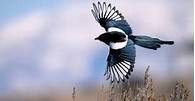Can You Have a Pet Raccoon in Massachusetts?
Raccoons are common sights in many parts of Massachusetts, and their curious and often friendly nature can make them seem like appealing pets. However, it is important to understand the laws and regulations regarding keeping raccoons as pets in the state before bringing one into your home. Let's dive into the details:

Legality of Owning a Pet Raccoon in Massachusetts
1. State Law: According to Massachusetts General Laws Chapter 131, Section 83, it is illegal to possess, transport, or release wild animals, including raccoons, without a permit from the Massachusetts Division of Fisheries and Wildlife (MassWildlife).
2. Permit Requirements: To obtain a permit, you must have a valid reason for keeping a raccoon as a pet, such as educational or rehabilitative purposes. You must also meet strict housing and care requirements set by MassWildlife.
Challenges of Keeping a Raccoon as a Pet
1. Behavioral Issues: Raccoons are wild animals, and even if raised in captivity, they can exhibit unpredictable and destructive behaviors. They may become aggressive, chew on furniture, and cause significant damage to your home.
2. Health Risks: Raccoons can carry diseases that can be transmitted to humans, such as rabies, roundworm, and raccoon roundworm. Proper precautions are necessary to minimize the risk of infection.
3. High-Maintenance Care: Raccoons have specific dietary, housing, and enrichment needs that can be challenging to provide in a domestic setting. They require a specialized diet, ample space to explore, and regular veterinary care, which can be expensive.
Alternatives to Owning a Pet Raccoon
1. Wildlife Rehabilitation: If you are genuinely passionate about raccoons and want to help them, consider becoming a wildlife rehabilitator. In Massachusetts, you can volunteer with organizations like the New England Wildlife Center or the Massachusetts Audubon Society to learn how to care for injured or orphaned raccoons and release them back into their natural habitats.
2. Wildlife Viewing: Massachusetts offers many opportunities to observe raccoons in their natural environment. Visit local parks, conservation areas, or wildlife sanctuaries to see these fascinating creatures from a safe distance and learn about their habits.
Conclusion
While raccoons may seem like captivating creatures, keeping them as pets in Massachusetts is not only illegal but also presents significant challenges and risks. For the well-being of both the animal and the community, it is best to appreciate raccoons from afar and leave them in their natural habitats.
Declaration: All article resources on this website, unless otherwise specified or labeled, are collected from online resources. If the content on this website infringes on the legitimate rights and interests of the original author, you can contact this website to delete it.




